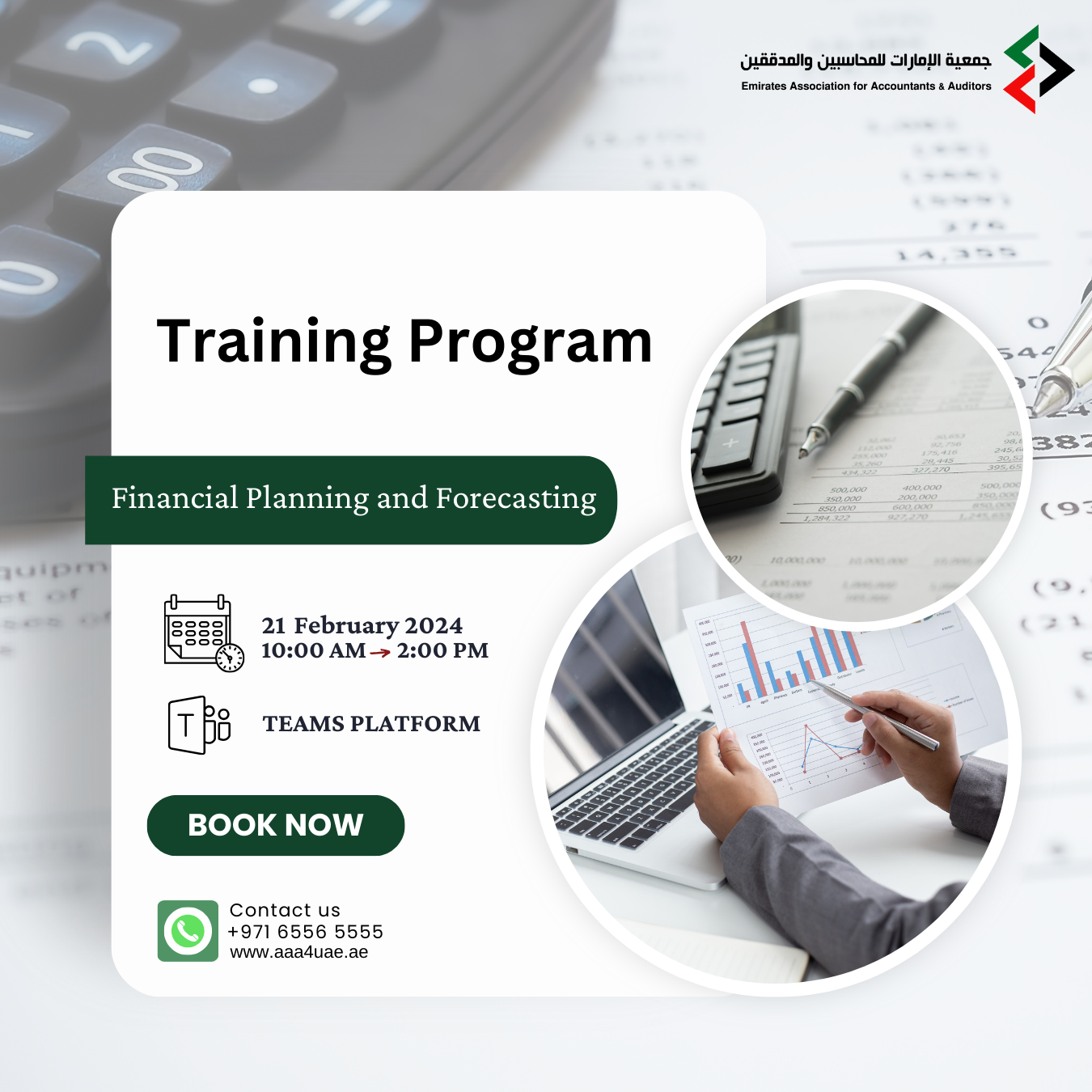Financial Planning and Forecasting
4 Hours, 21 Feb 2024, 10:00 AM-2:00 PM
Introduction to Financial Planning,
Forecasting and Budgeting
Target Audience: Experienced Auditors and Accountants (3-10 years)
Overall Objective:
Equip auditors and accountants with the fundamental knowledge and
skills to understand and perform basic financial planning, forecasting and
budgeting.
Program Objectives:
●
Define and Enhance understanding of key financial planning & forecasting (FP&F) concepts.
●
Explain the importance of financial planning for businesses: budgeting, profitability analysis and decision making.
●
Identify the steps involved
in creating a financial
plan: setting goals, forecasting future performance and evaluate results.
●
Understanding the purpose of financial
forecasting: predicting future financial performance and identifying potential
risks and opportunities.
●
Describe different forecasting methods: sales forecasting, expense forecasting and capital expenditure forecasting.
●
Learn how
to communicate and present Financial
Forecasting and Budgeting to stakeholders.
●
The importance of tracking the company’s progress and making the adjustments needed in the right time.
●
The importance of having a reliable
financial planning and budgeting system that reflects the impact of the rapid changes and crises in
the international market on the financial
position of the company.
Program Outline:
●
Introduction to Financial Planning Concepts
○
What is financial planning? Explaining key concepts of financial
planning
o Role of Financial Planning in corporate decision-making. Explain the importance of financial
planning for businesses.
●
Explaining steps of Financial
Planning
o Identify the steps involved in creating a financial
plan.
●
Introduction to Financial Forecasting Concepts
o Understanding key concepts
of financial forecasting.
o What is the role of financial
forecasting in enhancing
the financial performance.
●
Forecasting Methods
○
Explain the different forecasting methods.
Resources:
●
Access to online resources presented during the session.
Note:
This course is an introductory course that will highlight
the fundamental concepts of the financial planning, forecasting and budgeting.
Advanced concepts including financial Modelling, forecasting quantitative and qualitative techniques and sensitivity
won't be tackled in this course.










